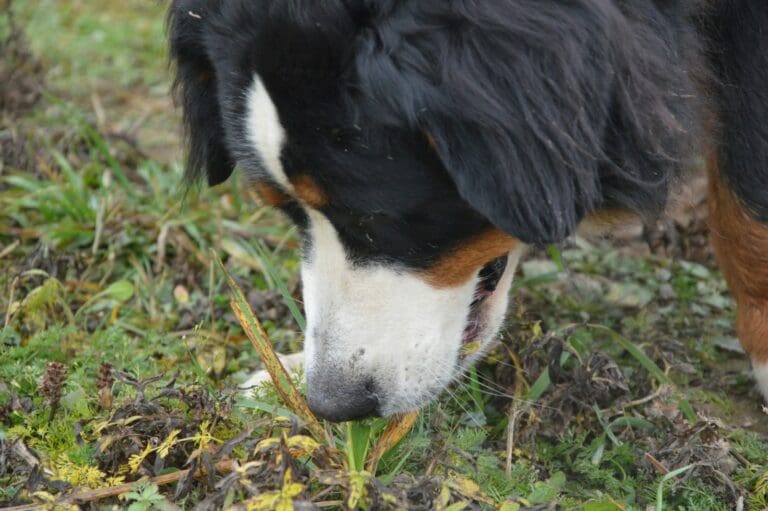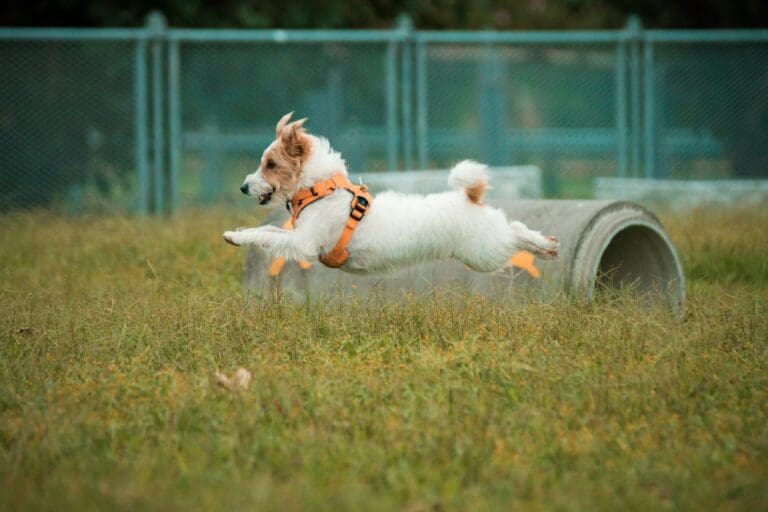Dogs are known for their playful and sometimes mischievous natures, and one common behavior that can be frustrating for pet owners is digging.
Fortunately, by following these tips — and with training and understanding — you can curb this behavior and create a harmonious living environment for both you and your furry friend.
1. Create Ways to Keep Your Dog Entertained
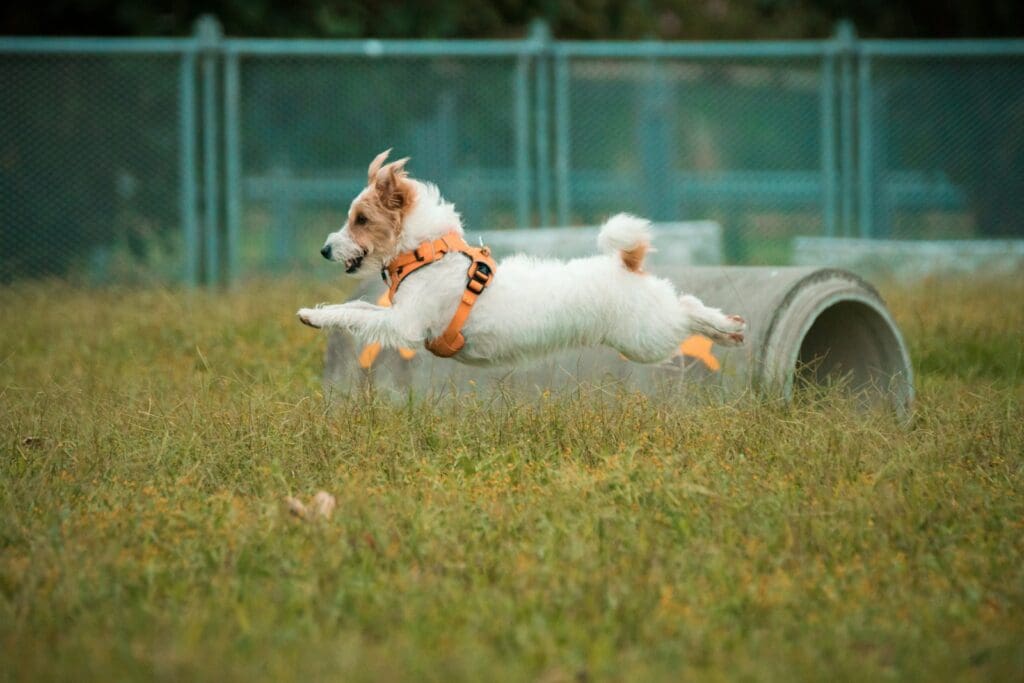
When dogs are left alone for long periods without the company of humans, they become bored and don’t have any toys or playmates, they will look for an outlet for their energy.
Some breeds, such as terriers, are bred to dig. Active dog breeds need a job to be happy. The bottom line: Make sure you provide ways for your dog to stay entertained so that it doesn’t fill the void by digging.
2. Provide Adequate Exercise

Regular exercise is essential to keep your canine companion mentally and physically stimulated.
Daily walks, and playtime such as a game of fetch, can help prevent the pent-up energy that often leads to digging.
3. Use Negative Reinforcement
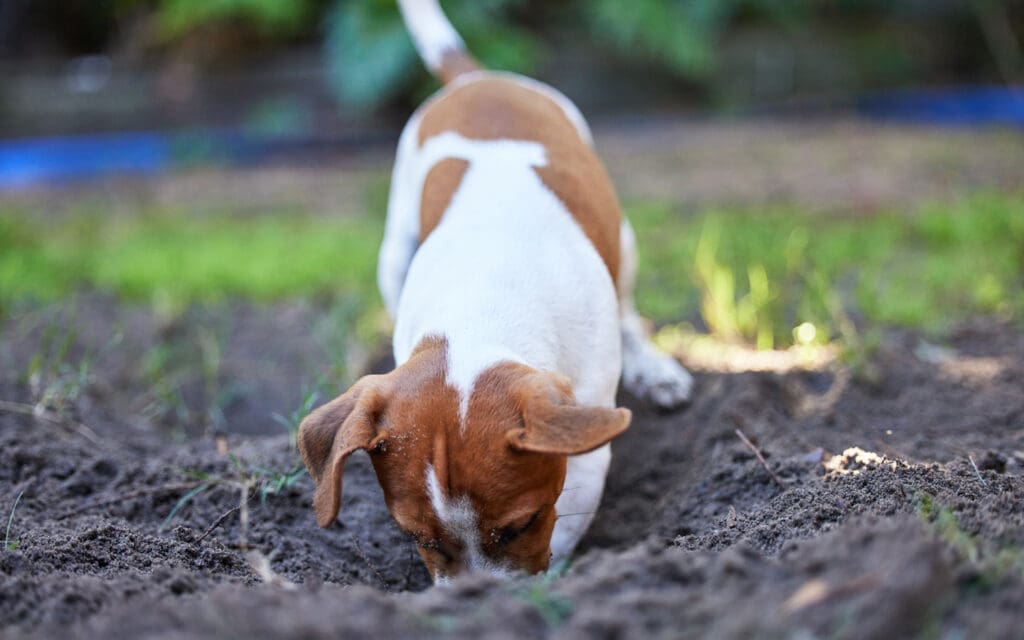
While positive reinforcement is effective, negative reinforcement can also be helpful. To deter digging in forbidden areas, use deterrents such as bitter apple spray or cayenne pepper. Dogs dislike these scents and tastes, so they will likely avoid digging in treated areas.
4. Block Access
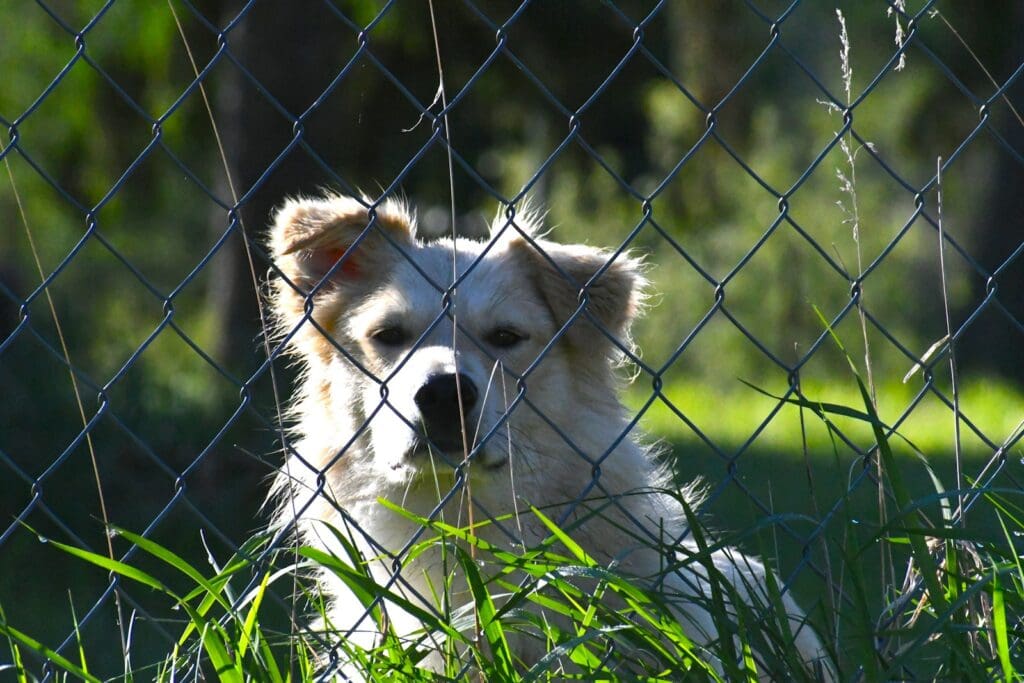
If your dog consistently targets specific areas, use physical barriers to block access. Fencing, chicken wire, or large rocks can prevent your dog from reaching their favorite digging spots. Eventually, they may lose interest in these areas and move on to more suitable places.
5. Make Their Digs Less Appealing
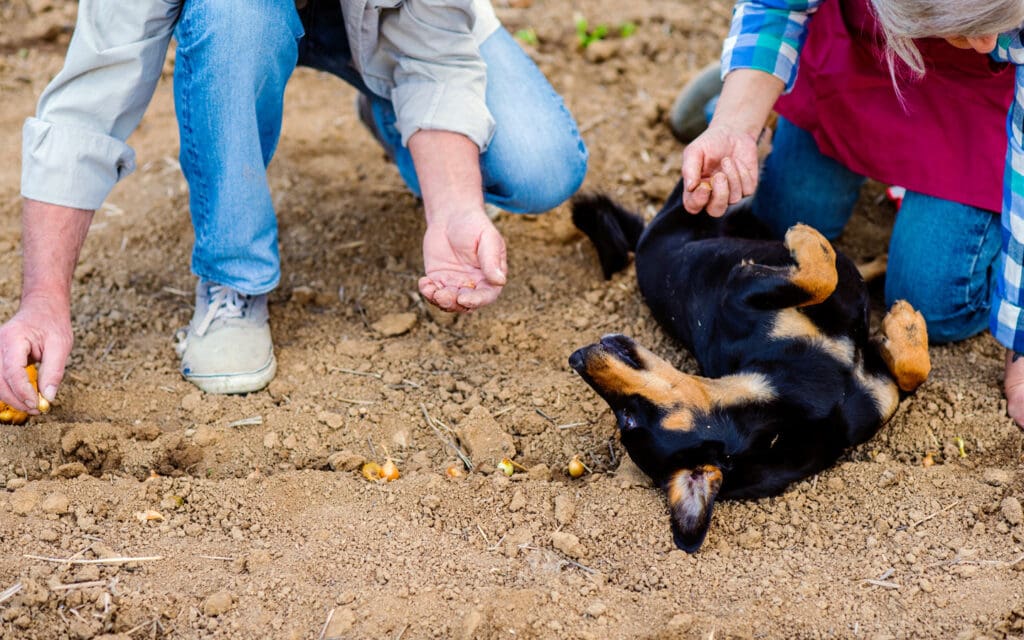
Dogs often dig because they find the texture of the soil or sand appealing. Make digging less enticing by covering the ground with materials dogs dislike, such as rough stones or pine cones. Alternatively, mix in uncomfortable textures like chicken wire just beneath the surface.
Some dogs dig to cool off, so if this is the case, create an alternate space with shade for your dog to cool often. A kiddie-wading pool can also help.
6. Designate a Digging Area
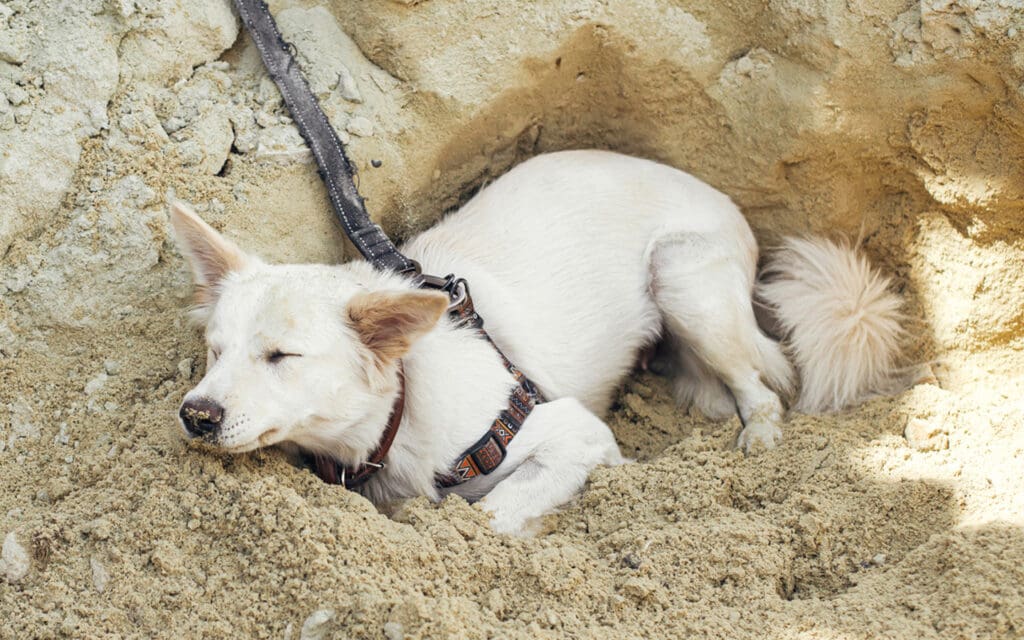
A reverse strategy is simply to not fight your dog’s natural instincts and provide a designated digging spot in your yard. This not only satisfies your dog’s natural digging instinct but also helps protect the rest of your yard.
Choose an area where your dog can dig freely and encourage them to use it. Bury toys or treats in this area to make it even more appealing.
When you catch your dog digging inappropriately, it’s essential to redirect their behavior immediately. Gently but firmly say “no” and guide them to their designated digging area. Reward them when they dig in the right spot to reinforce the positive behavior.
7. Consult a Professional Trainer

If your dog’s digging behavior is challenging to control on your own, consider enlisting the help of a professional dog trainer. They can provide tailored advice and training techniques to address your specific dog’s needs.
8. Monitor for Behavioral Changes
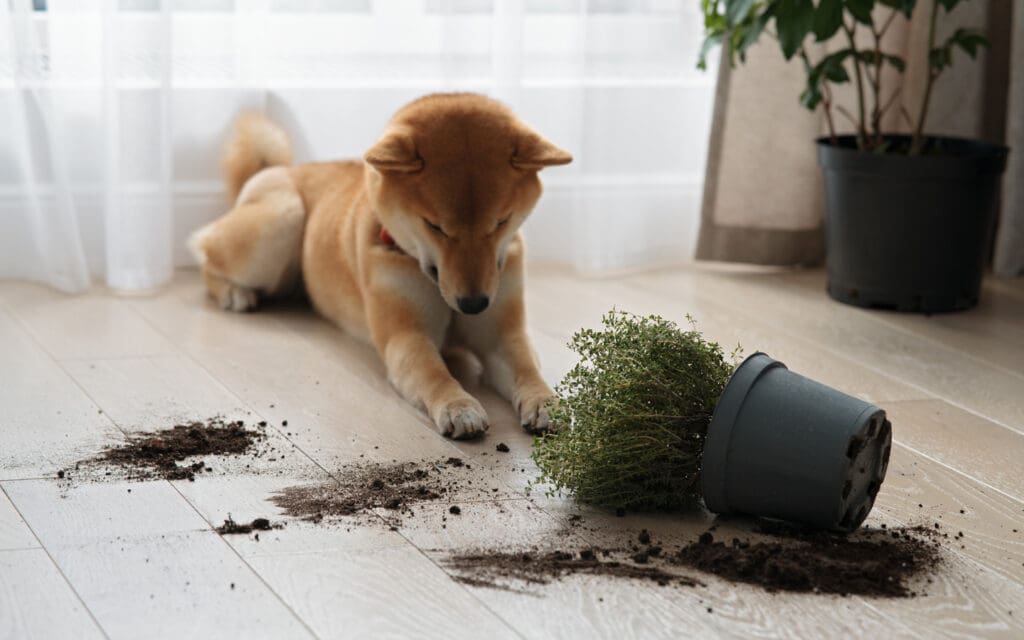
Sometimes, excessive digging can be a sign of underlying issues such as anxiety or boredom. Monitor your dog’s overall behavior, and if you suspect there are deeper issues at play, consult with a veterinarian or animal behaviorist to address any underlying problems.
Read More: 10 Biggest Mistakes Dog Owners Make
Final Thoughts

Preventing your dog from digging requires patience, consistency, and understanding. By providing your canine companion with proper exercise, designated digging areas, and a combination of positive and negative reinforcement, you can successfully discourage this behavior.
Remember that it’s crucial to be patient and persistent in your efforts. With time and the right techniques, you can enjoy a beautiful garden and a happy, well-behaved dog.
Read More: Why Does My Dog Like to Lay on Me?


